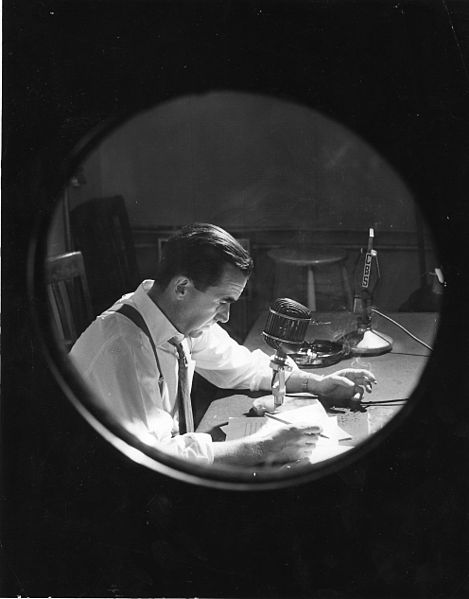I’ve been spending the past few columns discussing “the narrative” of World War II, our accepted version of the conflict, and how important it is to challenge it when we think it needs changing.
I’ve obviously touched a nerve. There have been some very stimulating posts on the “comments” section, in my email, and on my Facebook account. Unsurprisingly, not everyone is happy with me, and many of the comments have been pretty feisty. It’s something that goes with the territory, I’ve learned. It has to be jarring when some wiseacre comes along and challenges what you know to be right. Most Americans still know and feel in their hearts that World War II was a good war, fought for the right reasons, and conducted about as humanely as we possibly could.
 Look, I get that, and I’ll tell you why: I was raised in “the narrative.” I learned it as a kid. Hell, I MEMORIZED it as a kid. I’ve been eating, drinking, and sleeping the narrative as far back as I can remember. I am old enough to remember 78 rpm records—yeah, that I’m that old—and my folks had a copy of Edward R. Murrow’s I Can Hear it Now series dealing with the war. With one of the century’s greatest journalists as my guide, I could literally hear that war coming. Murrow laid it out: while the democracies slept, the dictatorships spent the 1930’s arming and preparing. It sure seemed that way. I listened to Mussolini boasting about his new Roman Empire in front of screaming crowds. I heard the Japanese soldiers roaring out their “Banzai” war cries in China. Above all—and it made an indelible impression on me—I listened to Hitler snarling his bloodthirsty threats against Czechoslovakia in 1938 at the time of the great crisis that culminated in the Munich Conference.
Look, I get that, and I’ll tell you why: I was raised in “the narrative.” I learned it as a kid. Hell, I MEMORIZED it as a kid. I’ve been eating, drinking, and sleeping the narrative as far back as I can remember. I am old enough to remember 78 rpm records—yeah, that I’m that old—and my folks had a copy of Edward R. Murrow’s I Can Hear it Now series dealing with the war. With one of the century’s greatest journalists as my guide, I could literally hear that war coming. Murrow laid it out: while the democracies slept, the dictatorships spent the 1930’s arming and preparing. It sure seemed that way. I listened to Mussolini boasting about his new Roman Empire in front of screaming crowds. I heard the Japanese soldiers roaring out their “Banzai” war cries in China. Above all—and it made an indelible impression on me—I listened to Hitler snarling his bloodthirsty threats against Czechoslovakia in 1938 at the time of the great crisis that culminated in the Munich Conference.
I even remember asking my dad that question that ALL sons ask at some point as they grow to manhood: “Dad, what’s the Sudetenland?”
OK, so I was a weird kid. But even today, I think of that little boy sitting in his living room in Cleveland, Ohio,, listening to a pile of ancient 78s, and I remember feeling certain that what Murrow was telling me wasn’t one mere “narrative” among many. It wasn’t one account that he was “privileging” above others, or some post-modern “construct.” To me, it was something real. It was the truth.
So sure, as a professional historian, I challenge the narrative wherever possible and when I think the facts warrant it. But where I get off the train is when it starts down the “we were all at fault” track and assigns equal moral demerits to the democracies and the dictatorships. It ain’t all up for grabs. World War II may or may not have been a “crusade,” but I still think the Allies had little choice but to fight and win it, and I’m glad they did. Even today, “I can hear it now.”
Next week, we’ll let Frank Capra tell us “Why We Fight.”
For the latest in military history from World War II‘s sister publications visit HistoryNet.com.




